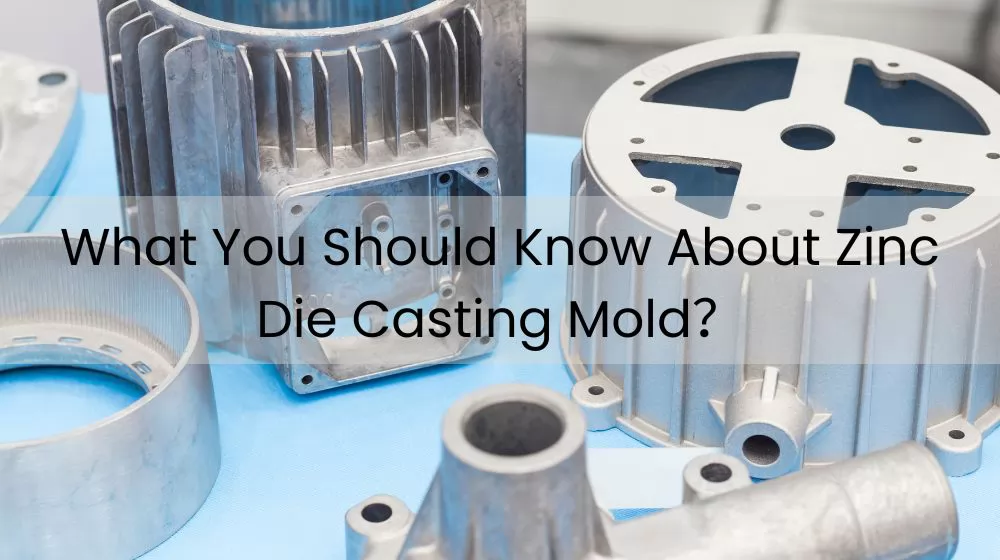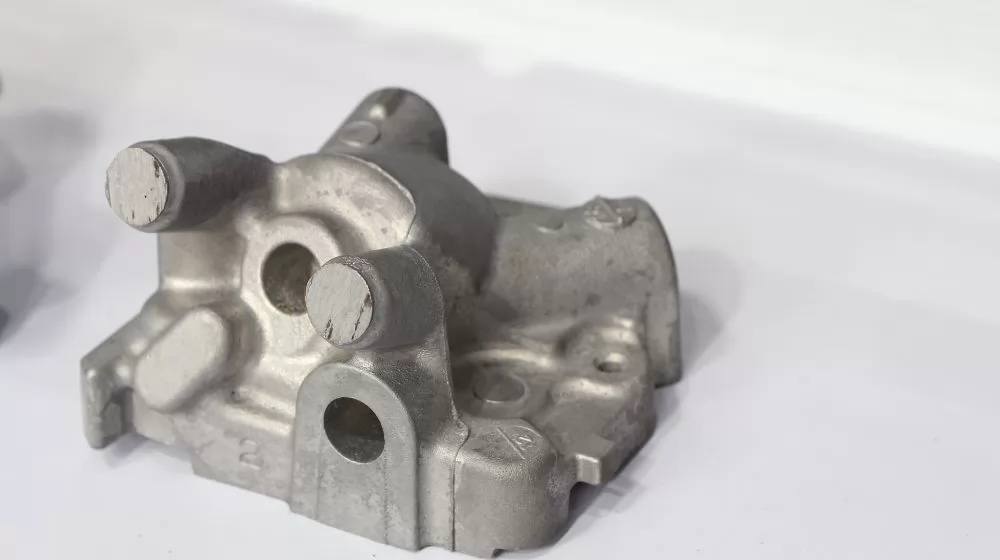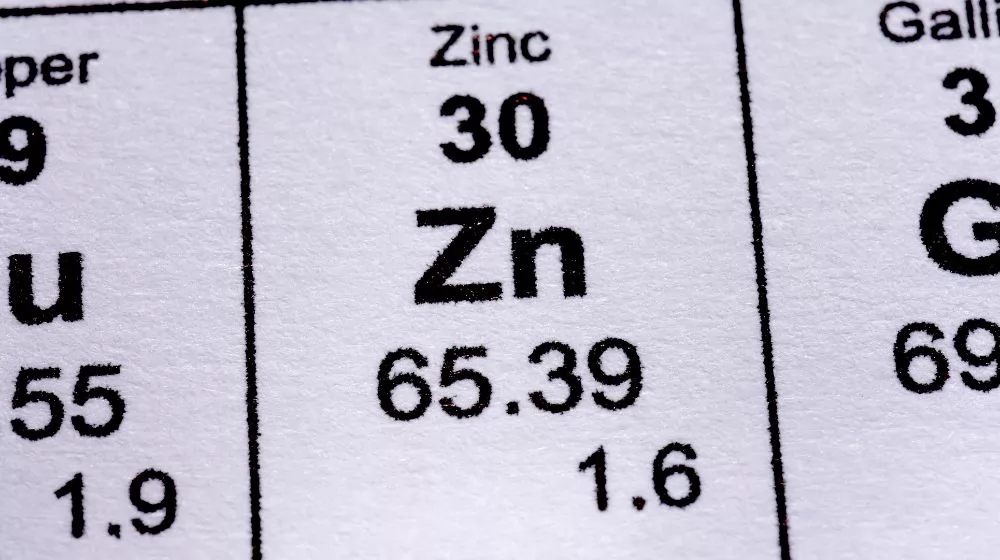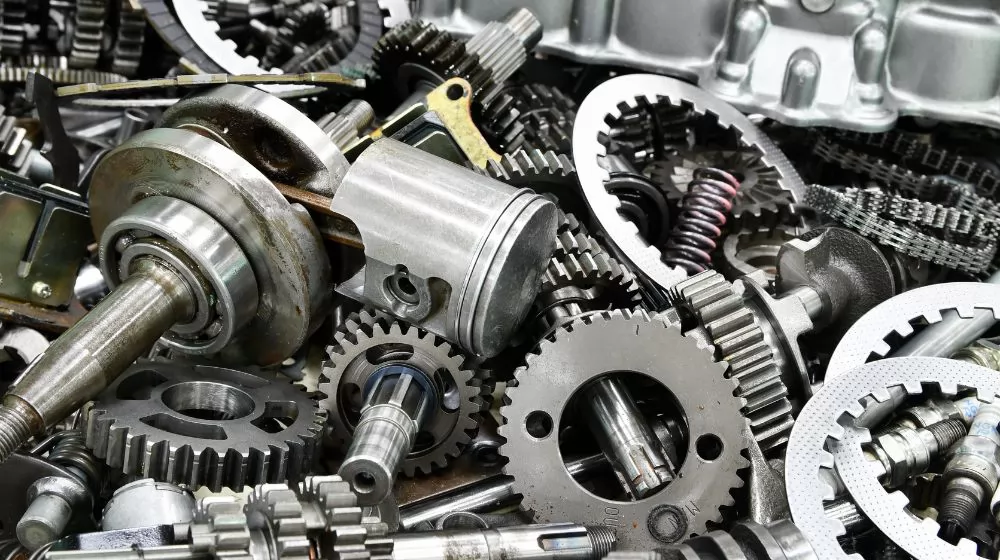
Zinc die casting mold is an indispensable key element in the production of zinc die castings. They play an important role in shaping the shape of products, ensuring dimensional accuracy and providing high-quality surfaces. As an important technology in modern manufacturing, the design and manufacture of zinc die-casting molds has rich experience and is constantly evolving and improving. Let's delve into the mysteries of zinc die casting molds, learn about their manufacturing process, and their applications in various industries.
Article Directory:
What is Zinc Die Casting?
Zinc die casting is a common metal die casting process, also known as zinc alloy die casting. It refers to the process of injecting molten zinc alloy into a special mold, filling the entire mold cavity with pressure, and taking out the molded part after cooling and solidification.
Zinc die casting has the following characteristics:
High-precision: Zinc die-casting technology enables high-precision and complex shape manufacturing. Molds are precisely designed to produce high precision, dimensionally stable parts for applications requiring precision and detail.
High efficiency: The low melting point and fluidity of zinc alloy make the zinc die casting process have high efficiency. High-quality zinc alloy parts can be mass-produced in a short period of time through rapid injection, rapid cooling and rapid mold removal.
Good physical properties: Zinc alloys have good physical properties, such as good mechanical properties, wear resistance, corrosion resistance and thermal conductivity, etc. Therefore, parts with high strength and good performance can be obtained through zinc die casting.
Strong plasticity: Zinc alloy has good plasticity and can adapt to various complex shapes and structural requirements. Through zinc die-casting, parts with rich details and uniform wall thickness can be manufactured to realize the creativity and requirements of designers.
Economical and practical: Compared with other metal die-casting processes, the cost of zinc die-casting is low and economical and practical. The price of zinc alloy material is relatively low, and it can reduce production cost through high output and fast production cycle, which is suitable for mass production.
Zinc die casting is widely used in many fields, especially in the automotive, electronics, communication, home appliances and aerospace industries. It is used in the manufacture of various parts and assemblies such as automotive parts, electronic housings, connectors, switches, hand tools, etc.
All in all, zinc die casting is a high-precision, high-efficiency, and economical and practical metal die-casting process. By using zinc alloy materials, parts with excellent physical properties and complex shapes can be produced to meet the needs of different industries.
Why Zinc Alloy For Die Casting?

Zinc alloys for die casting refer to alloy materials specially used in zinc die casting process. Zinc alloy has many advantages in die casting, making it one of the important materials widely used in various industries.
The following are some commonly used zinc alloys for die casting:
ZAMAK: ZAMAK is a commonly used family of zinc alloys consisting of the elements zinc, aluminum, magnesium and copper. It has excellent fluidity, corrosion resistance and mechanical properties, and can be used to manufacture parts of complex shapes.
ZA series: ZA series alloys are a combination of zinc alloy and aluminum alloy. By adjusting the ratio of aluminum and zinc, different performance characteristics can be obtained. ZA alloy has high strength, hardness and wear resistance, and is suitable for applications requiring high mechanical properties.
ZP series: ZP series alloys are a combination of zinc and aluminum, with good fluidity and high precision, suitable for manufacturing high-precision parts and precision instruments.
ZL series: ZL series alloys are the combination of zinc and aluminum, magnesium, copper and other elements. It has high strength and excellent corrosion resistance, and is suitable for the manufacture of parts requiring high strength and corrosion resistance.
Zinc alloys for die casting have the following advantages:
Excellent fluidity: Zinc alloy has a low melting point and low viscosity, which enables it to better fill the mold cavity during die casting and form complex shaped parts.
High precision and reproducibility of details: Zinc alloy can accurately reproduce the details of the mold, so that the manufactured parts have the characteristics of high precision and clear details.
Excellent physical properties: Zinc alloys for die casting have good mechanical properties, corrosion resistance and thermal conductivity. They are able to meet the part performance requirements of various applications.
Strong plasticity: Zinc alloy has good plasticity, which can adapt to complex shapes and details, and realize the creativity and requirements of designers.
Zinc alloys for die casting are widely used in industries such as automobiles, electronics, home appliances, and communications. They are used in the manufacture of various parts and assemblies such as automotive parts, electronic housings, connectors, switches, home appliance accessories, and more.
All in all, zinc alloy for die casting is a kind of material with excellent performance and wide application. Through zinc die casting process, high-precision and high-quality parts can be produced to meet the manufacturing needs of complex shapes and high requirements in various industries.
Advantages of Zinc Die Casting Mold
High manufacturing efficiency: Zinc die-casting molds can achieve high-speed production and high-efficiency production processes. Due to the low melting point and good fluidity of the zinc alloy, the mold filling speed is fast and the cooling time is short, which improves the production efficiency.
High precision: Zinc die-casting molds can produce high-precision parts and complex-shaped products. Advanced CAD/CAM technology and precision machining equipment are used in the mold manufacturing process to ensure accurate reproduction of part size and details.
Good surface quality: Zinc die-casting molds are able to produce a smooth, delicate surface quality. During the mold filling process, the zinc alloy has good fluidity and can fill small mold details and concave-convex surfaces, making the product surface finish high without additional processing and surface treatment.
High strength: Due to the excellent physical properties of zinc alloy, products made by zinc die-casting molds have high strength and rigidity. This enables zinc die castings to maintain structural stability and reliability when subjected to external forces and stresses.
Good corrosion resistance: Zinc alloy has good corrosion resistance and can remain stable in harsh environments. Products made of zinc die-casting molds can resist acid and alkali corrosion, oxidation and corrosion of corrosive media, prolonging the service life of the product.
Disadvantages of Zinc Die Casting Mold
Higher cost: Compared with other die-casting materials, the cost of zinc alloy is higher, so the price of products made by zinc die-casting molds is relatively high. This can be a limiting factor in some cost-sensitive applications.
Poor wear resistance: Compared with other metal materials, zinc alloy has lower hardness and wear resistance. Zinc die castings used in some high friction, high wear environments may require more frequent maintenance and wear faster.
Poor dimensional stability: Zinc alloys have a large shrinkage rate during cooling, which may lead to relatively poor dimensional stability of products manufactured by zinc die-casting molds. In applications with higher size requirements, additional controls and handling may be required.
Restricted material selection: As a die-casting material, zinc alloy has relatively few material types and options. Compared with other materials, zinc die casting molds have less flexibility in material selection.
Application of Zinc Die Casting Mold

Zinc die casting molds are widely used in many different fields due to their unique advantages and characteristics. Here are some common zinc die casting mold applications:
Automobile industry: Zinc die casting molds play an important role in automobile manufacturing. They are used to produce automotive components such as engine parts, transmission systems, chassis components, braking systems, suspension systems and electronics. Zinc die-casting molds can provide high-precision, high-quality and complex-shaped parts to meet the requirements of automakers for lightweight components and performance optimization.
Electronic and communication equipment: Zinc die casting molds are widely used in the field of electronic and communication equipment. They are used to manufacture key components such as casings, radiators, connectors, etc. of mobile phones, computers, communication equipment, and household appliances. Zinc die-casting molds can achieve high precision, complex shapes and good surface quality, meeting the requirements of electronic products for appearance, function and performance.
Home appliances and electrical appliances: Zinc die-casting molds are widely used in the field of home appliances and electrical appliances. They are used to make housings, components and hardware for home appliances such as refrigerators, washing machines, air conditioners and water heaters. Zinc die-casting molds can produce parts with high quality, corrosion resistance and beautiful appearance, which meet the requirements of appearance, stability and function of home appliances.
Construction and decoration: Zinc die-casting molds are widely used in the fields of construction and decoration. They are used in the manufacture of door and window hardware, lighting fittings, hardware and other products. Zinc die-casting molds enable the manufacture of complex shapes and exquisite appearance, providing high-quality, weather-resistant and aesthetically pleasing products.
Other fields: Zinc die-casting molds are also used in aerospace, military, medical equipment and other fields. They are used to make critical components such as aircraft parts, weaponry, and medical devices. Zinc die-casting molds can provide high strength, high precision and corrosion resistance to meet the requirements of product quality and performance in special fields.
Zinc die casting mold or aluminum die casting mold? Is there a better option?
Aluminum is by far the most commonly used alloy in die casting. The most common die cast aluminum alloys are A380 and A383. Both offer the best combination of material properties and castability. Aluminum alloy die castings are widely used in various industries. This alloy is commonly found in electronics, communications equipment, automotive components, gearboxes, lawn mower housings, hand and power tools, and many other products. Zinc and ZA alloys are typically used for smaller die castings or where thinner sections are required. Zinc alloys generally allow greater variation in section thickness and can hold tighter tolerances. Zinc die-cast components have higher impact strength than other common metal alloys. Additionally, since zinc and ZA alloys require lower pressures and temperatures than magnesium and aluminum alloys, die life is significantly longer with relatively minimal maintenance.
the Which alloy is best for a particular application is often determined by design specifications. The alloy generally provides physical and mechanical properties suitable for the end product application. Aluminum die-cast fabrication is best for lightweight applications, while thinner/smaller applications are best for zinc die-cast fabrication. For product designers looking for die casting suppliers, it is important to understand each alloy type offered and the benefits involved.
Frequently Asked Questions

How long is the life of zinc die casting mold?
The life of zinc die-casting dies depends on many factors, including conditions of use, alloy composition, quality of die material, and maintenance. Generally speaking, after proper maintenance and maintenance, high-quality zinc die-casting molds can be used tens of thousands of times or even more. However, if the mold is misused or suffers damage, life may be shortened.
What should I do if there are pores and defects on the surface of the mold?
Porosity and blemishes on the mold surface can be caused by a variety of reasons, such as uneven cooling, improper mold temperature control, or inaccurate injection parameter settings. Solutions include optimizing the cooling system, adjusting temperature control, adjusting injection parameters, and cleaning and maintaining the mold regularly. If the problem is severe, the mold may need to be repaired or replaced.
How to improve the life of zinc die casting die?
To improve the life of zinc die-casting dies, the following measures can be taken:
Choose high-quality mold materials, such as high-quality tool steel or wear-resistant alloy steel.
A well-designed cooling system ensures uniform cooling and avoids thermal stress.
Control the injection parameters of the alloy, such as temperature, speed and pressure.
Regularly inspect and maintain the mold, remove impurities and residues, and carry out necessary lubrication.
Avoid excessive use of molds or injection of alloys that are too hot to prevent excessive wear and damage.
How much influence does the design of the mold have on the quality of zinc die castings?
The design of the mold has an important influence on the quality of zinc die castings. Reasonable mold design can ensure uniform filling of material, reduce air holes and defects, and ensure accurate reproduction of part size and details. Excellent mold design should take into account factors such as alloy fluidity, cooling system, nozzle and doorway position to maximize the quality of zinc die castings.
How strong is zinc die casting?
Zinc die castings are stronger than the most common non-ferrous alloys used in die castings. For example, the yield strength of zinc die-cast alloys is approximately 2.5 times that of aluminum die-cast alloys.
Will die-cast zinc rust?
Zinc castings have high corrosion resistance. Therefore, even if used in a corrosive environment, zinc castings will not rust.
Can zinc die castings be welded?
No, zinc die castings are difficult to weld due to their low melting point. However, the use of materials such as superalloy 1 will enable the welding of die castings.
Summarize
The development and application of zinc die-casting molds continue to promote the progress of modern manufacturing. Through continuous innovation and improvement, mold manufacturers are able to produce more precise, efficient and durable zinc die-casting molds to meet the needs of different industries for high-quality, complex-shaped parts. Zinc die casting molds play an important role in the automotive industry, electronics and communication equipment, home appliances and appliances, construction and decoration, and provide critical support for products in various industries.
At HingTung, we are committed to meeting your zinc die casting mold needs and providing you with excellent service. We are proud to be able to provide customers with product design and model design support, at the same time, we also provide metal molds, plastic molds and silicone molds to meet your various needs. If you are interested in working with us or would like to know more about the services we can provide, please contact us immediately.


